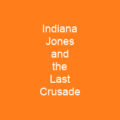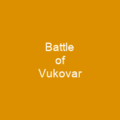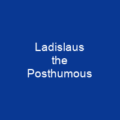Croatia

Croatia is a country at the crossroads of Central and Southeast Europe on the Adriatic Sea. It borders Slovenia to the northwest, Hungary to the northeast, Serbia to the east, and Bosnia and Herzegovina and Montenegro to the southeast. Its capital and largest city, Zagreb, forms one of the country’s primary subdivisions, along with twenty counties. Croatia is classified by the World Bank as a high-income economy.
About Croatia in brief
 Croatia is a country at the crossroads of Central and Southeast Europe on the Adriatic Sea. It borders Slovenia to the northwest, Hungary to the northeast, Serbia to the east, and Bosnia and Herzegovina and Montenegro to the southeast. Its capital and largest city, Zagreb, forms one of the country’s primary subdivisions, along with twenty counties. Croatia has an area of 56,594 square kilometres and a population of 4. 07 million. It is a member of the European Union, the United Nations, the Council of Europe, NATO, and the World Trade Organization. Croatia is classified by the World Bank as a high-income economy and ranks very high on the Human Development Index. Tourism is a significant source of revenue, with Croatia ranked among the 20 most popular tourist destinations in the world. The state controls a part of the economy, with substantial government expenditure. The European Union is Croatia’s most important trading partner. Croatia provides social security, universal health care, and tuition-free primary and secondary education, while supporting culture through numerous public institutions and corporate investments in media and publishing. The name of Croatia derives from Medieval Latin Croātia, a derivation of North-West Slavic *Xrovat-, by liquid metathesis from Common Slavic period *Xorvat, and possibly comes from Old Persian *xaraxwat-, the root word being a 3rd-century Scytho-Sarmatian form attested in the Tanais Tablets as Χοροάθος.
Croatia is a country at the crossroads of Central and Southeast Europe on the Adriatic Sea. It borders Slovenia to the northwest, Hungary to the northeast, Serbia to the east, and Bosnia and Herzegovina and Montenegro to the southeast. Its capital and largest city, Zagreb, forms one of the country’s primary subdivisions, along with twenty counties. Croatia has an area of 56,594 square kilometres and a population of 4. 07 million. It is a member of the European Union, the United Nations, the Council of Europe, NATO, and the World Trade Organization. Croatia is classified by the World Bank as a high-income economy and ranks very high on the Human Development Index. Tourism is a significant source of revenue, with Croatia ranked among the 20 most popular tourist destinations in the world. The state controls a part of the economy, with substantial government expenditure. The European Union is Croatia’s most important trading partner. Croatia provides social security, universal health care, and tuition-free primary and secondary education, while supporting culture through numerous public institutions and corporate investments in media and publishing. The name of Croatia derives from Medieval Latin Croātia, a derivation of North-West Slavic *Xrovat-, by liquid metathesis from Common Slavic period *Xorvat, and possibly comes from Old Persian *xaraxwat-, the root word being a 3rd-century Scytho-Sarmatian form attested in the Tanais Tablets as Χοροάθος.
The origin of the name is uncertain but is thought to be a Gothic or Indo-Aryan term assigned to a Slavic tribe. Croatia was first internationally recognized as an independent state on 7 June 879 during the reign of Duke Branimir. On 25 June 1991, Croatia declared independence and the Croatian War of Independence was fought for four years following the declaration. In October 1918, the State of Slovenes, Croats and Serbs, independent from Austria-Hungary, was proclaimed. In December 1918 it was merged into the Kingdom of Yugoslavia. Following the Axis invasion of Yugoslavia in April 1941, most of the Croatian territory was incorporated into a Nazi installed puppet state, the Independent State of Croatia. In 1527, faced with Ottoman conquest, the Croatian Parliament elected Ferdinand I of Austria to the Croatian throne. The first attestation of the term “Croat” is attributed to a charter of the Duke Trpimirović from the year 852. The original copy of the charter is lost, and just a 1568 copy is preserved, leading to doubts over the authenticity of the claim. The oldest preserved record of Croatian ethnonym is the Baška tablet in style zv�nъrvatъ of the variable variable xrskskъ. It is dated to the 8th or early 9th century, the presumably oldest preserved stone inscription is the 9th-century Dux Cruuxator.
You want to know more about Croatia?
This page is based on the article Croatia published in Wikipedia (as of Dec. 29, 2020) and was automatically summarized using artificial intelligence.












